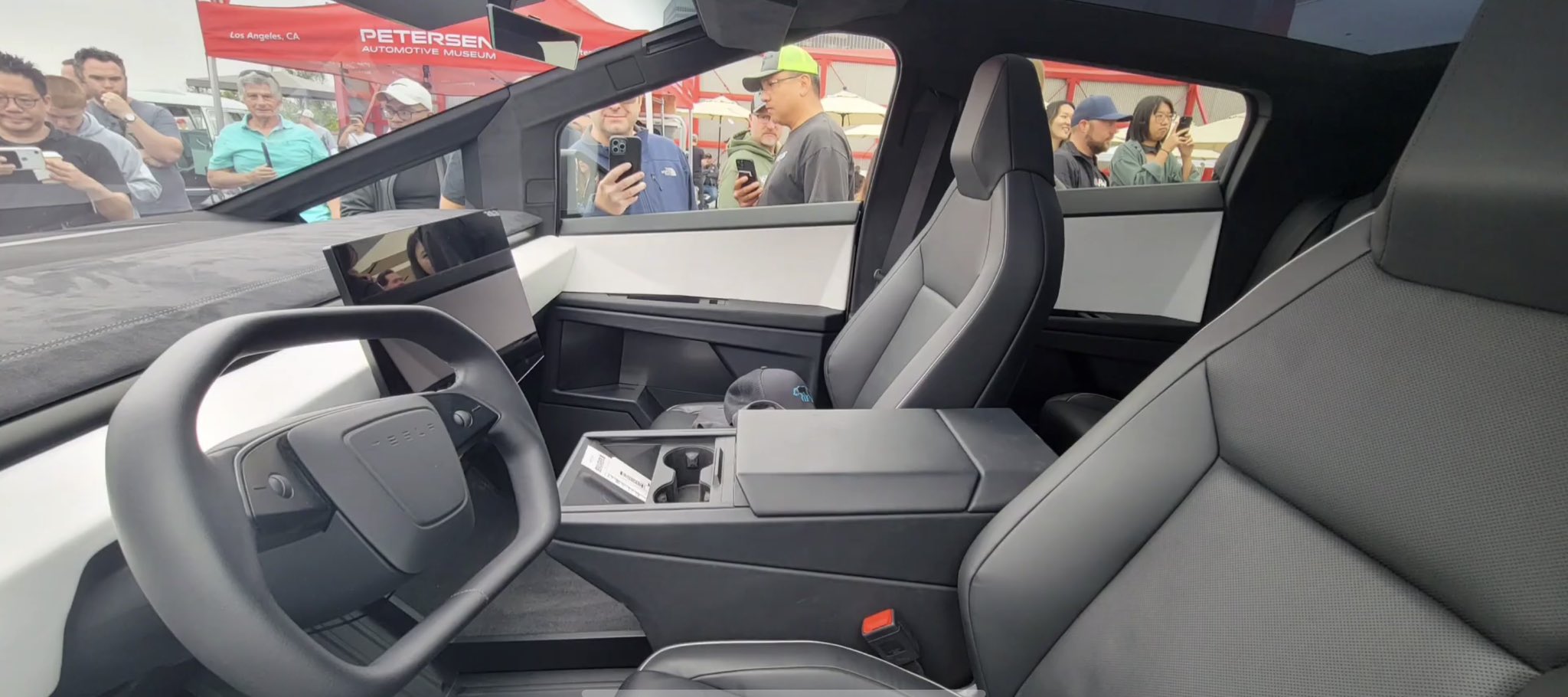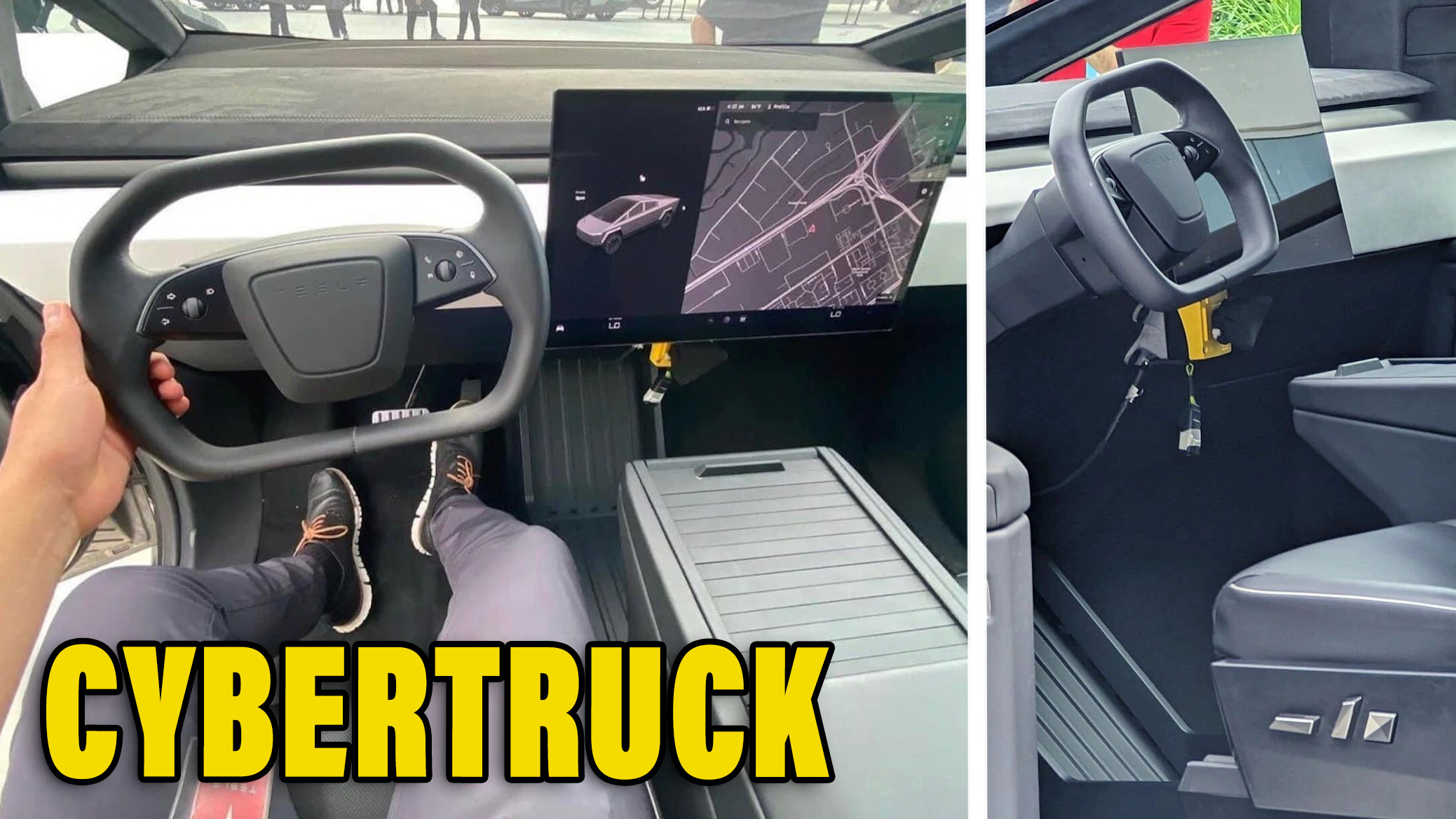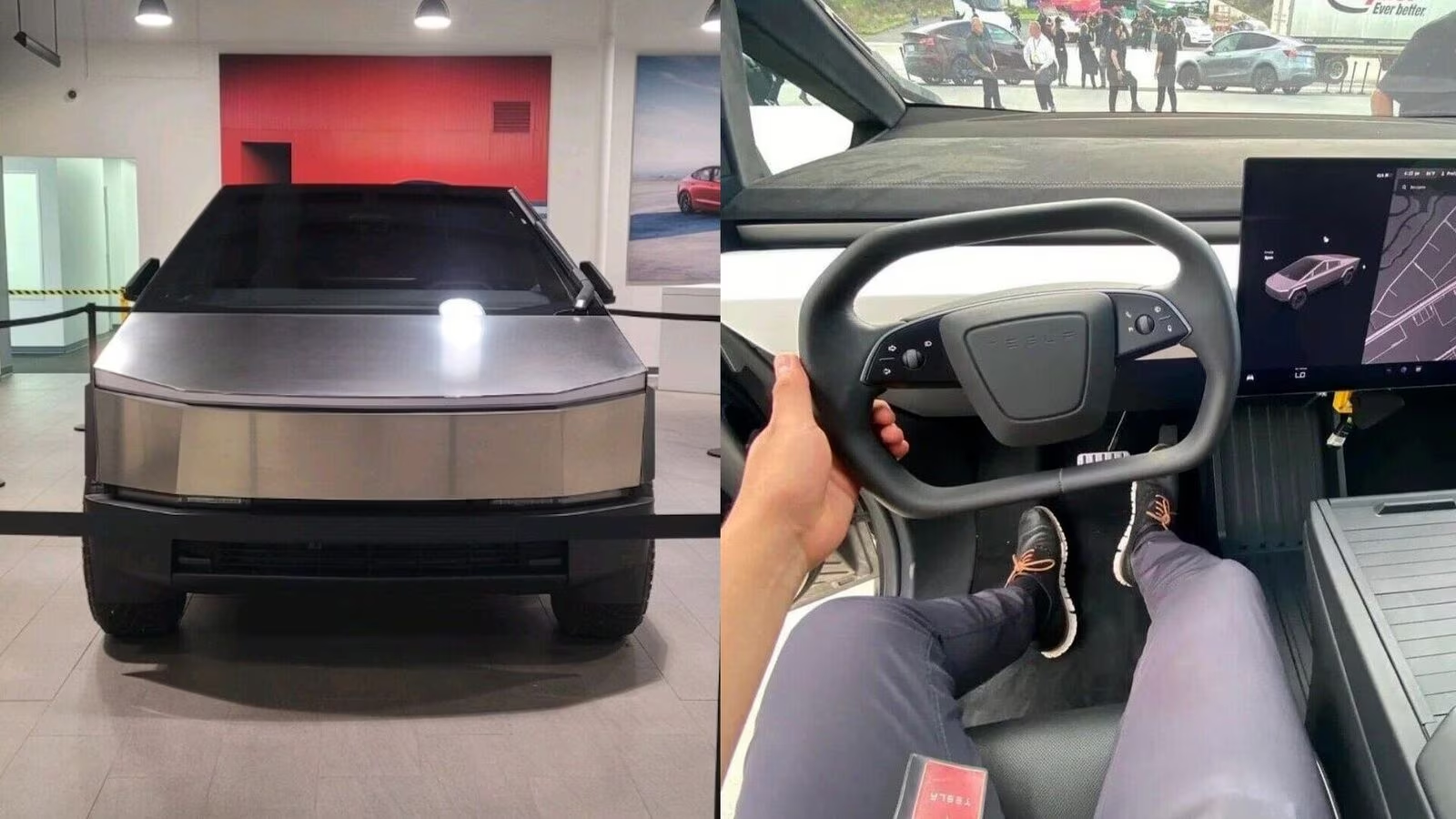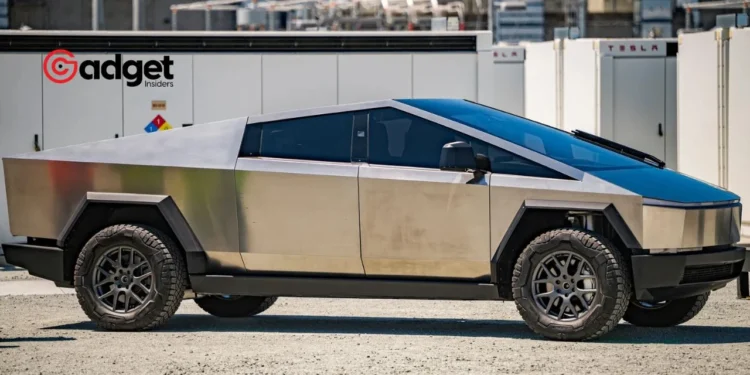Tesla’s Cybertruck, hailed as the epitome of American engineering, has hit a roadblock that contradicts its national pride claims. A recent exposé reveals that the futuristic pickup’s steering system, a critical component of the vehicle, relies on a part manufactured in Mexico. This discovery comes amidst reports of steering failures in several newly acquired Cybertrucks, tarnishing the brand’s image and raising questions about its manufacturing disclosures.

Cybertruck Disassembly Reveals Contradiction in ‘Most American-Made’ Claim
During an elaborate disassembly of a new Cybertruck intended for a popular online video, mechanics stumbled upon a telling detail. A label on the steering motor clearly indicated its Mexican origin, a fact that aligns poorly with Tesla’s previous assertions. The company has often boasted that the Cybertruck is “the most American-made” pickup, with a significant 65 percent of its parts sourced from the US or Canada.
However, the breakdown by Caresoft, a firm known for its detailed automotive teardowns, paints a different picture by highlighting the foreign-sourced steering motor. This revelation is particularly concerning given the component’s link to numerous vehicle malfunctions, some occurring mere moments after the trucks rolled off the dealership lots.
Tesla cybertruck with more “round” steering yolk. pic.twitter.com/wspu40VpO3
— Sofiaan Fraval (@Sofiaan) March 1, 2023
Industry and Consumer Reactions
The industry’s response was swift, with attention focusing on the broader implications for Tesla’s supply chain integrity. Pass Automotive, a German company with operations in Mexico, was identified as the producer of the steer-by-wire systems used in Tesla’s vehicles. Despite Tesla’s reliance on foreign parts, public statements by executives like Stephan Matz, General Director of Pass Automotive Mexico, had not previously disclosed specific details about their relationship with Tesla.

On the consumer front, the impact is palpable. Thomas Remo, an entrepreneur from Irvine, California, voiced his dismay after his Cybertruck malfunctioned dramatically right after purchase. His initial excitement quickly turned into frustration as the vehicle displayed severe steering issues, leading to multiple forced stops. Remo’s experience is not isolated, as similar reports have emerged from other owners, including a distressing account from Matthew Chirello in Arizona, who described his ordeal as a “catastrophe failure” on social media before withdrawing his post.
The Broader Impact on Tesla’s Reputation
This steering part debacle raises significant concerns about Tesla’s commitment to transparency and quality in manufacturing. The allure of Tesla’s vehicles often lies in their cutting-edge technology and the promise of a robust American manufacturing ecosystem. However, the reliance on a critical foreign-made part not only undermines the ‘American-made’ label but also poses safety risks that could affect consumer trust and loyalty.

As Tesla grapples with the fallout from these revelations, the automotive community and potential buyers will likely watch closely how the company addresses these manufacturing inconsistencies and safety concerns. The road ahead for Tesla’s Cybertruck might be bumpier than expected, prompting a reassessment of what ‘made in America’ means in the context of global manufacturing and supply chain complexities.
Conclusion
Tesla’s challenges with the Cybertruck’s steering components underscore the complexities of maintaining a truly American-made product in a globalized supply chain. The incident serves as a critical lesson in transparency and quality assurance, not just for Tesla but for the entire automotive industry. As Tesla addresses these issues, the eyes of the world will be watching, waiting to see if they can steer back to their promised standards of innovation and integrity.










